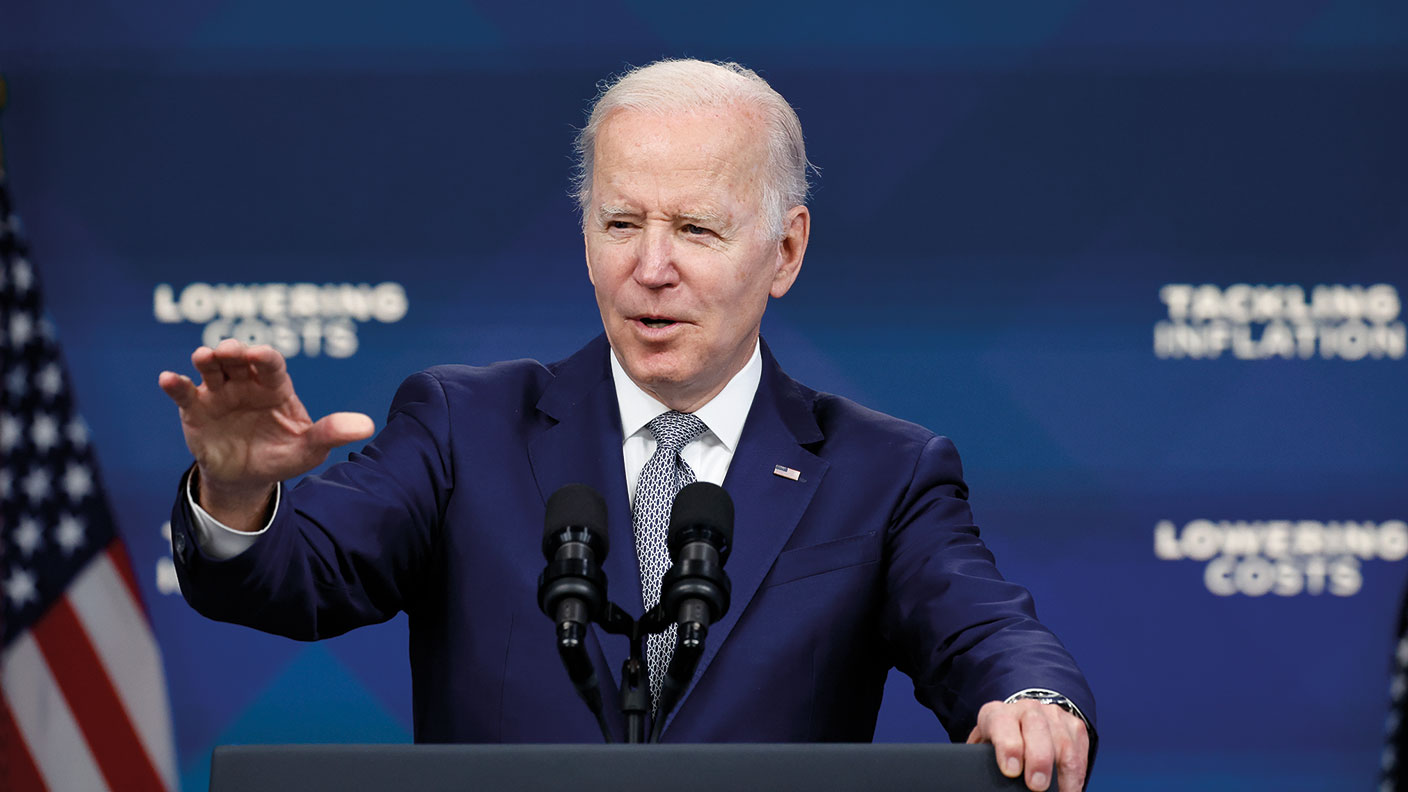Plenty of reasons to be optimistic
Despite all the doom and gloom, there really is plenty to be optimistic about right now, says Merryn Somerset Webb.

Get the latest financial news, insights and expert analysis from our award-winning MoneyWeek team, to help you understand what really matters when it comes to your finances.
You are now subscribed
Your newsletter sign-up was successful
Want to add more newsletters?

Twice daily
MoneyWeek
Get the latest financial news, insights and expert analysis from our award-winning MoneyWeek team, to help you understand what really matters when it comes to your finances.

Four times a week
Look After My Bills
Sign up to our free money-saving newsletter, filled with the latest news and expert advice to help you find the best tips and deals for managing your bills. Start saving today!

Looking for reasons to be optimistic? You've come to the right place. In our cover story, Rupert Foster looks at the extraordinary economic growth in India (8.2% in the second quarter of the year); the odds of that continuing; and the case for investing in some of the discounted investment trusts invested there. We also look at one of our long-term favourite markets, Japan which, thanks in part to the recent global sell off, really does look like very good value at the moment. Until very recently, analysts in Asia had to put an extraordinary amount of effort into explaining why it was okay for the average price/earnings (p/e) ratio of Japanese stocks to be so much higher than that on all other developed world stocks. No more. This week the Topix index is trading on a p/e ratio of a mere 13 times.
Max King explains why last week's Budget was really a pretty good one. It saved Universal Credit, as it had to (this is crucial, as the way the old system incentivised part-time work was awful for both our productivity and our deficit). It has probably kept our deficit reduction on track (the Office for Budget Responsibility's forecast GDP numbers are too gloomy); and it showed the public finances to be in perfectly good enough shape to get us through Brexit. With that in mind you might also look to the remarkably inexpensive UK equity market (if you listen to our podcast, you can hear John Stepek explaining his own decision to sell down his emerging-markets holdings and reallocate the cash to the UK).
Finally, we look at the results of the mid-term elections in the US. So far, as far as the market is concerned at least, it seems that gridlock is good (equities jumped as the results became clear). This makes sense. As analysts at Gavekal point out, there are times when dramatic changes to regulation are a good thing (the deregulation, "dramatic reduction in the flood of new rules", tax reform and in particular corporate tax cuts of 2016 could all fall into this category). But the majority of the time, "adjusting to a new legal environment chews up time and money". Had the Democrats taken their blue wave into both houses, there would have been a slew of new regulation (to say nothing of an attempted impeachment). Had the Republicans hung on, there was a risk of more major and contentious policy changes (more tax cuts could have been horribly inflationary, for example).
MoneyWeek
Subscribe to MoneyWeek today and get your first six magazine issues absolutely FREE

Sign up to Money Morning
Don't miss the latest investment and personal finances news, market analysis, plus money-saving tips with our free twice-daily newsletter
Don't miss the latest investment and personal finances news, market analysis, plus money-saving tips with our free twice-daily newsletter
Both outcomes would have been difficult in their own ways but both would have come with risks to the economy (and it has quite enough of those on the go already). Look at it like that and, while they might make no-one in the US particularly happy, the results of these elections really couldn't have been much better.
Get the latest financial news, insights and expert analysis from our award-winning MoneyWeek team, to help you understand what really matters when it comes to your finances.

-
 Early signs of the AI apocalypse?
Early signs of the AI apocalypse?Uncertainty is rife as investors question what the impact of AI will be.
-
 Reach for the stars to boost Britain's space industry
Reach for the stars to boost Britain's space industryopinion We can’t afford to neglect Britain's space industry. Unfortunately, the government is taking completely the wrong approach, says Matthew Lynn
-
 What to do as the age of cheap money and overpriced equities ends
What to do as the age of cheap money and overpriced equities endsEditor's letter The age of cheap money, overpriced equities and negative interest rates is over. The great bond bull market is over. All this means you will be losing money, says Merryn Somerset Webb. What can you do to protect yourself?
-
 Investors are bullish – but be very careful
Investors are bullish – but be very carefulEditor's letter Many investors are buying the dip, convinced the latest upswing is the start of a new bull market. The odds are that it’s not, says Andrew Van Sickle. The bear has unfinished business.
-
The MoneyWeek approach to investing
Editor's letter At MoneyWeek, our aim is simple: to give you intelligent and enjoyable commentary on the most important financial stories, and tell you how to profit from them. So how do we do that?
-
 Celebrity bitcoin ads echo the subprime mortgage crisis
Celebrity bitcoin ads echo the subprime mortgage crisisEditor's letter A wave of ads featuring celebrities punting crypto to the masses are reminiscent of how low income Americans were encouraged to take on loans they couldn’t afford, says Merryn Somerset Webb.
-
 Will the UK's property slowdown turn into a house-price crash?
Will the UK's property slowdown turn into a house-price crash?Editor's letter As the cost-of-living crisis intensifies and interest rate rise, it is hard to see reasons for UK house prices to keep rising, says Merryn Somerset Webb.
-
 The unintended consequences of ESG investing
The unintended consequences of ESG investingEditor's letter Many people are refusing to invest in energy companies, citing "ESG" concerns. But we still need fossil fuels, says Merryn Somerset Webb, and will for years to come. Boycotting the sector is a bad idea.
-
 What sardines can teach investors about today's markets
What sardines can teach investors about today's marketsEditor's letter A California tale of “eating sardines” and “trading sardines” can help us divide investments into speculative and real, says Merryn Somerset Webb. Something that's very useful when looking at today’s markets.
-
 The market finally seems to be getting it
The market finally seems to be getting itEditor's letter Reality checks are coming fast to the markets, says Merryn Somerset Webb – with even 2022’s safe havens beginning to reflect recession worries.